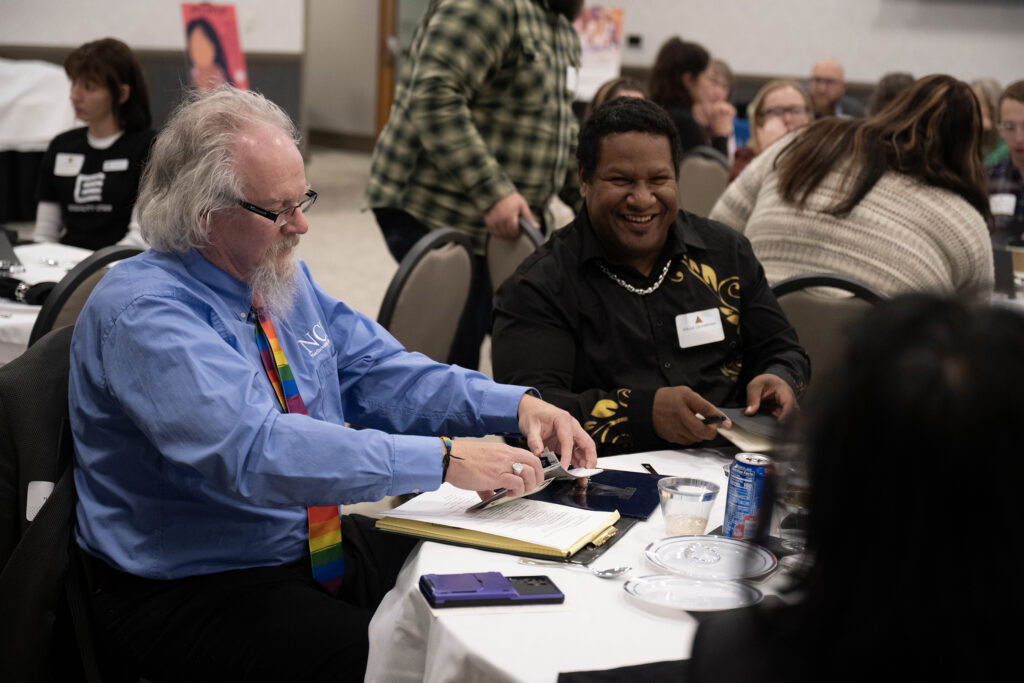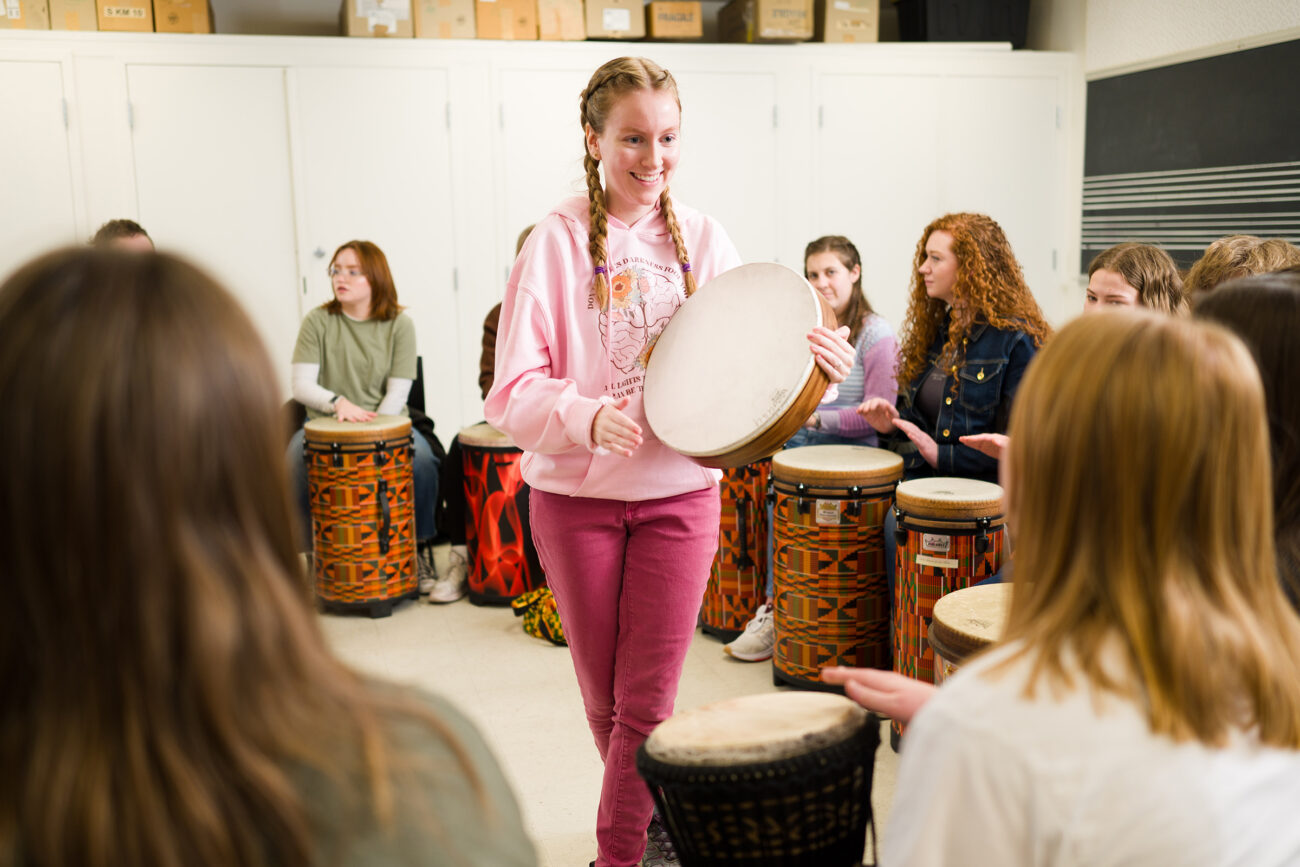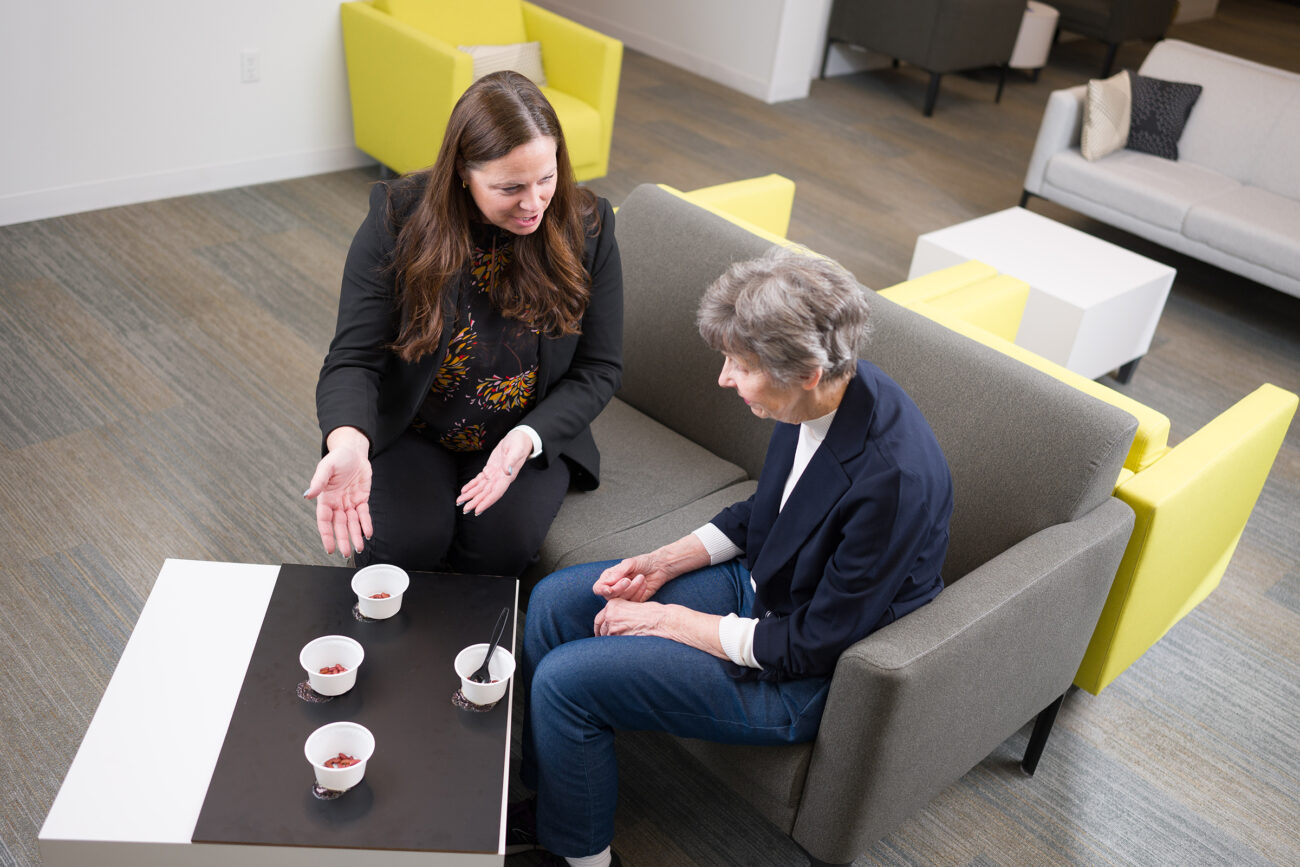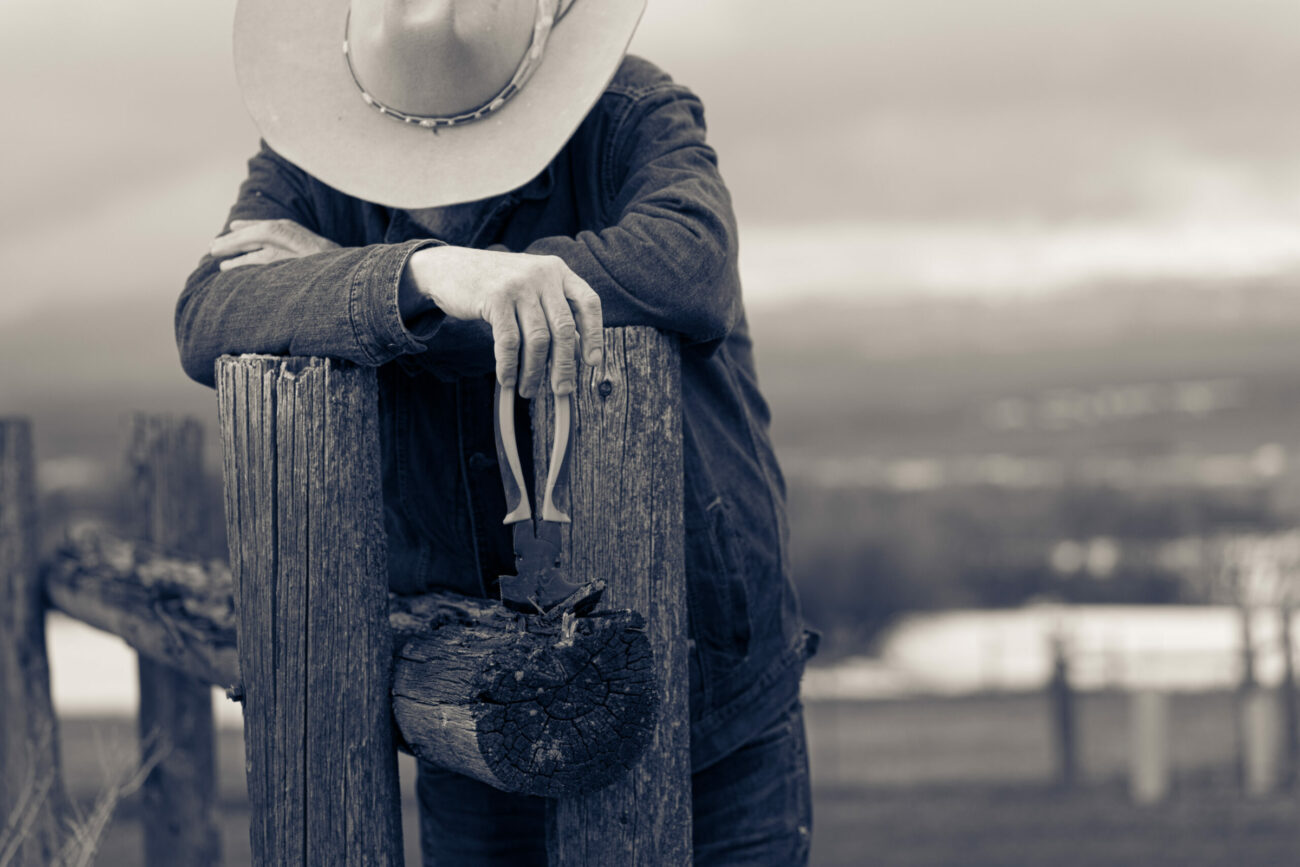Fostering A Sense of Belonging With Food
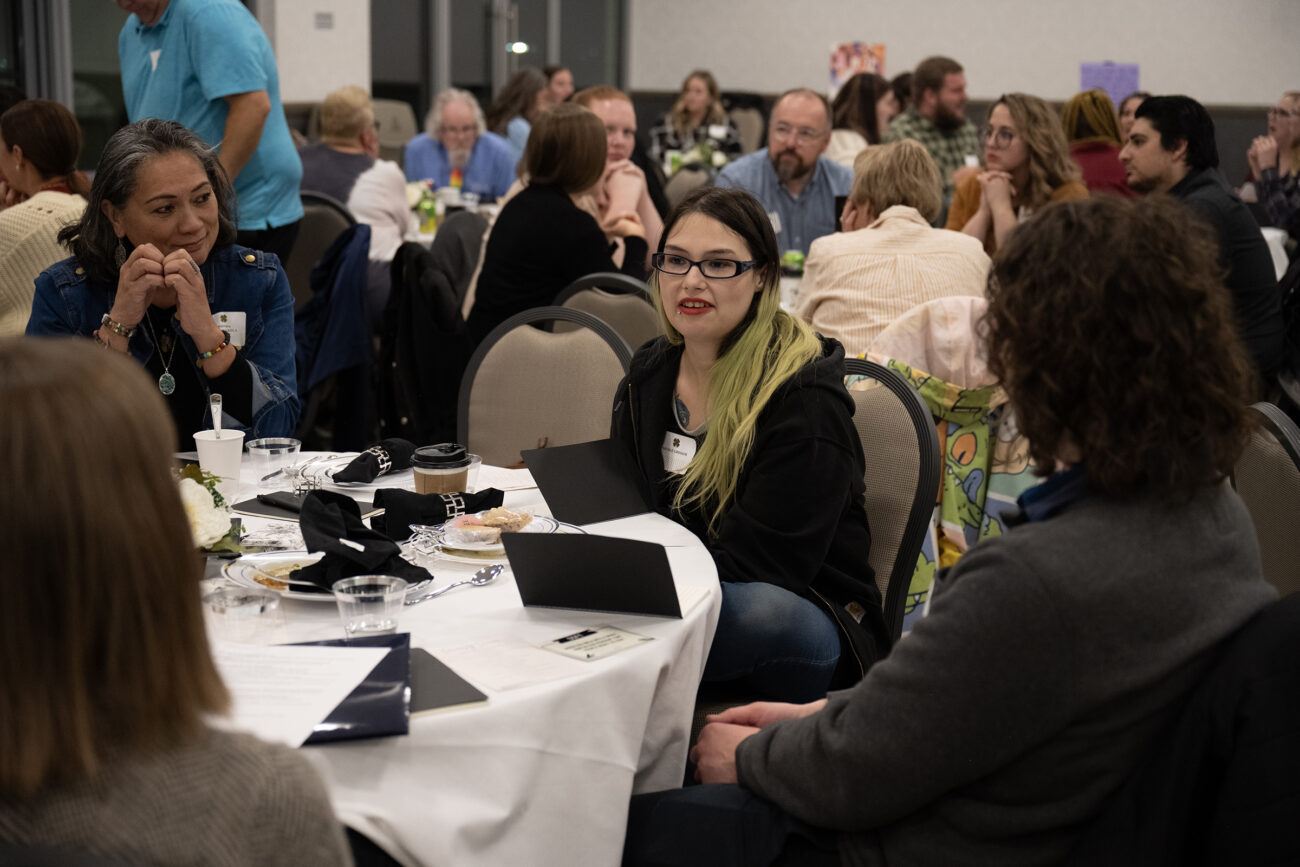
USU’s Center for Intersectional Gender Studies and Research Hosts Annual Diversity Dinner in Vernal
By Timothy R. Olsen ’09, ’18
We will listen to understand and speak to be understood.
We will refrain from expressions of judgment and from attempts to persuade others.
We will keep everything confidential to this time, this place, and this room.
These are just a few of the “agreements” made by those who participate in the annual Diversity Dinner in Vernal, Utah. The dinner, which is sponsored by USU’s Center for Intersectional Gender Studies and Research, is a collaborative event with the community and an opportunity to foster a sense of belonging with underrepresented groups.
“It’s a really amazing event to try and build bridges between people to make sure our community members are interacting with each other in meaningful ways,” says Latrisha Fall, the assistant director of the Center for Intersectional Gender Studies and Research and founder of the event.
“We all live in this community together, but we can get so stuck on different sides of an issue that we forget that we’re all members of this community and we interact and live with each other. So, it’s easy to take out the people attached to issues and only look at the issue, and this dinner helps remind people that there’s people attached to every issue.”
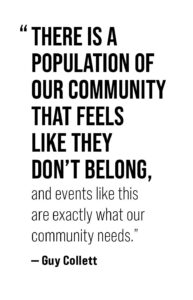
Though the event — held yearly in mid-November — is open to all, those who show up expecting to sit with those they arrive with will be sorely disappointed. The registered attendees are calculatingly assigned to different tables to allow each group to have valuable and varied conversation.
Jim LaMuth, USU’s Director of Programs at the Vernal campus, has served as a facilitator during the dinner for all three years the event has been held, posing questions and helping to keep the conversation moving.
“There’s a lot of intention that goes into setting up the tables,” shares LaMuth. “There’s a survey that goes out to get an idea of how people identify themselves within demographic areas, and then we figure out how we can socially construct, in a positive way, a diverse table.”
For example, the attendees at one of the tables at this year’s dinner included an archeologist, a principal, a radio show host, an internet security provider, and someone who works in communication and marketing. These individuals were as unique as their career paths, bringing different genders, races, religions, and sexual orientations with them to the table and highlighting the diversity that exists within this region of rural Utah.
At the table, guests were invited to discuss and answer a series of questions, such as: What does belonging look like to you? What have you learned about yourself as you’ve learned more about people who are different from you? What stereotypes do you believe that people have about you?
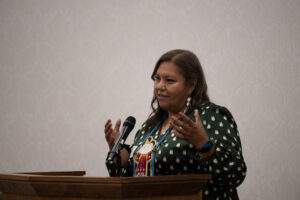
Guy Collett (’02), a 59-year-old real estate agent, attended the Diversity Dinner this year for the first time. He said there are a lot of people in the community from different backgrounds and experiences and that events like this can help foster better community connections.
“My family has been here since the 1880s, and Vernal looks much different than even 50 years ago,” says Collett, who is the president of USU’s “Aggies in the Basin” alumni chapter.
“A lot of people that come into our community or that are from different backgrounds don’t feel connected. Sometimes, we as rural Utah people, we’ve kind of pushed these people away. … There is a population of our community that feels like they don’t belong, and events like this are exactly what our community needs.”
Following the dinner, one of the takeaways was that the community wants more. Fall is actively working to expand the program to other communities that are home to USU’s Statewide Campuses, and the Vernal community expressed an interest to expand the event to more than once a year.
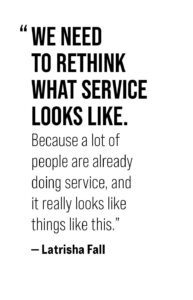
“I do think that there’s this opportunity that people are wanting more because they’ve had this hour of difficult, inspiring, growth-area conversation,” LaMuth says. “I’ve noticed now, three years in a row, people are asking, ‘What are the next steps? How do we like expand this? How do we have these conversations on our own?’ And the dinner is initiating that.”
Fall says her favorite thing about the Diversity Dinner is that the feedback she receives is overwhelmingly positive regardless of the gender, religion, ethnicity, or political views of the attendees. Plus, people bring up the dinner, discussing it for months afterwards and suggesting new people to invite each year.
“We need to rethink what service looks like. Because a lot of people are already doing service, and it really looks like things like this,” Fall says. “It looks like making spaces for people, it looks like, hosting diversity dinners, it looks like having conversations about how we can partner with other people in our community so they can really come together.”
